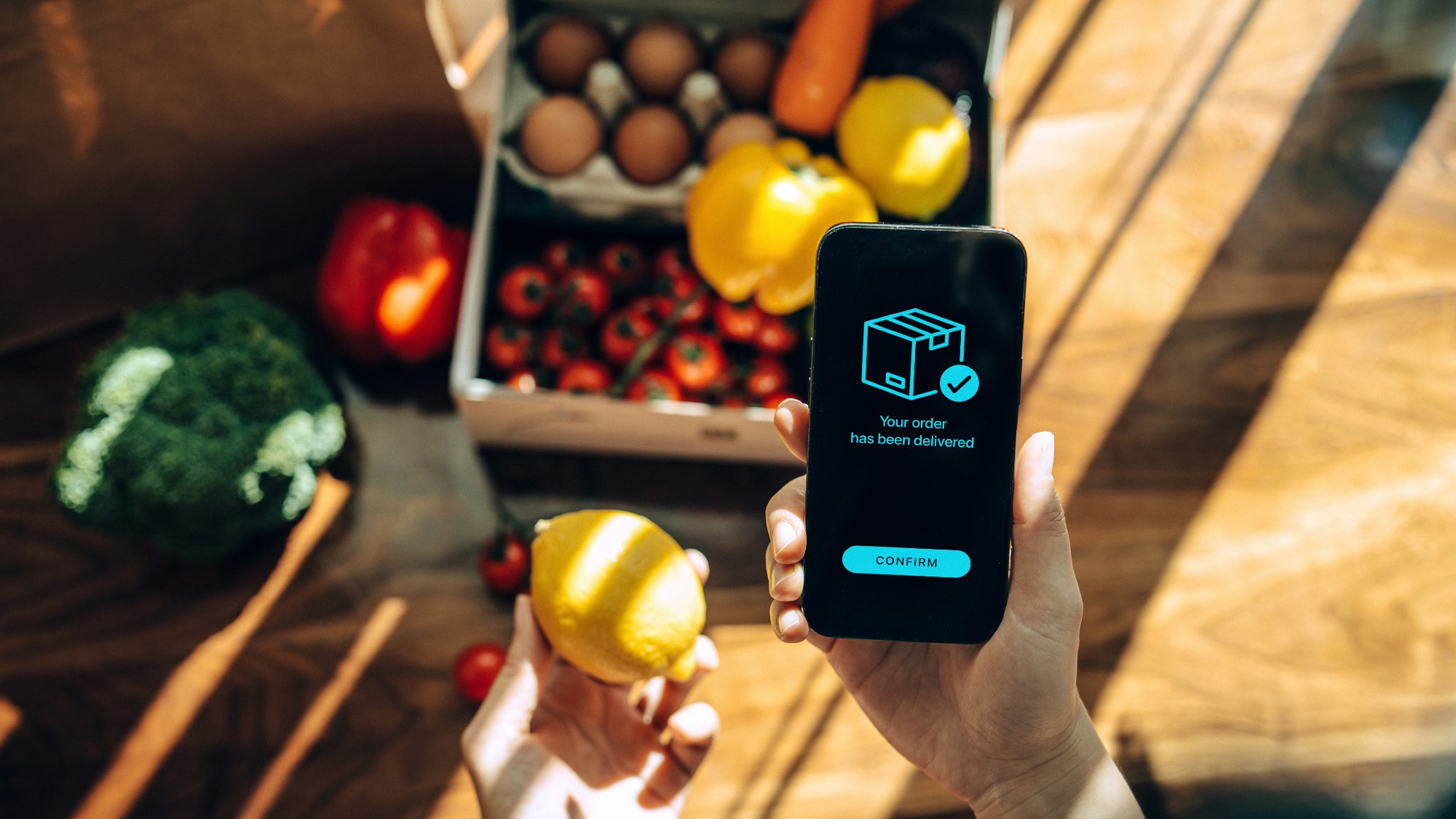Why are Americans using 'buy now, pay later' apps to buy groceries?
A 'layaway program, but reversed'


A free daily email with the biggest news stories of the day – and the best features from TheWeek.com
You are now subscribed
Your newsletter sign-up was successful
Credit cards are so old-fashioned. Americans are increasingly turning to "buy now, pay later" (BNPL) apps to pay for groceries and takeout, and some experts warn the trend could lead to a rise in consumer debt.
Apps like Klarna, Affirm and Afterpay are a "modern-day layaway program but reversed," said NewsNation. Layaway programs would let consumers make installment payments in advance, taking an item home only after it was fully paid for. BNPL apps let buyers get what they want "upfront for a small deposit." One new poll found 55% of Americans use the apps. Another survey found a quarter of users pay for groceries using the apps. Is doing so wise? You could pay off a shampoo purchase with a BNPL app, said NerdWallet's Sara Rathner, "but just because you can doesn't mean you necessarily should."
The BNPL sector "has gotten big enough that Klarna is now planning to go public," said Inc. There are pitfalls to the boom: A January report from the Consumer Financial Protection Bureau found that the majority of app users have "subprime or deep subprime credit scores."
The Week
Escape your echo chamber. Get the facts behind the news, plus analysis from multiple perspectives.

Sign up for The Week's Free Newsletters
From our morning news briefing to a weekly Good News Newsletter, get the best of The Week delivered directly to your inbox.
From our morning news briefing to a weekly Good News Newsletter, get the best of The Week delivered directly to your inbox.
What did the commentators say?
It is "objectively bleak" that anybody would have to make months-later payments "on food they've already eaten," Amy McCarthy said at Eater. That already happens with credit cards, but "using (and paying off) a credit card can help boost your credit score." Klarna's BNPL service, which has a partnership with DoorDash, does not provide that perk. It is "easy to see the appeal of putting off that payment" when you are broke and want Thai food, but be on alert "when companies cook up creative new ways for people to go into debt."
BNPL apps can "cause budgetary strains" for struggling households, Kelly Ernst said at CNET. That is an "ominous" problem when there is a "risk of a job-loss recession." Interest-free BNPL apps can help you buy items "without incurring credit card interest charges," but they can also "lead to racking up even more debt." That means using an app is "rarely" a good idea. "The next time I'm craving pad Thai," Ernst said, "I plan on paying upfront."
What next?
The growth of pay-later apps could "indicate a growing comfortability with financial risks" among younger consumers, said Fortune. "We have a gambling economy," said Kyla Scanlon, a Gen Z economic commentator. Young Americans already have app access to memecoins and sports betting. "We love a good vice in the United States," she said, "and we can do it completely frictionless."
This may explain why BNPL users are also increasingly late with their payments, said CNBC. A LendingTree poll found that 41% had made a late payment on an app loan, "up from 34% in the year prior." A turbulent economy may only increase those numbers, said LendingTree's chief consumer finance analyst, Matt Schulz. Consumer uncertainty is "going to mean leaning on buy now, pay later loans, for better or for worse."
A free daily email with the biggest news stories of the day – and the best features from TheWeek.com
Joel Mathis is a writer with 30 years of newspaper and online journalism experience. His work also regularly appears in National Geographic and The Kansas City Star. His awards include best online commentary at the Online News Association and (twice) at the City and Regional Magazine Association.
-
 House votes to end Trump’s Canada tariffs
House votes to end Trump’s Canada tariffsSpeed Read Six Republicans joined with Democrats to repeal the president’s tariffs
-
 Bondi, Democrats clash over Epstein in hearing
Bondi, Democrats clash over Epstein in hearingSpeed Read Attorney General Pam Bondi ignored survivors of convicted sex offender Jeffrey Epstein and demanded that Democrats apologize to Trump
-
 Are Big Tech firms the new tobacco companies?
Are Big Tech firms the new tobacco companies?Today’s Big Question Trial will determine if Meta, YouTube designed addictive products
-
 Is the US in a hiring recession?
Is the US in a hiring recession?Today's Big Question The economy is growing. Job openings are not.
-
 Will Trump’s 10% credit card rate limit actually help consumers?
Will Trump’s 10% credit card rate limit actually help consumers?Today's Big Question Banks say they would pull back on credit
-
 How prediction markets have spread to politics
How prediction markets have spread to politicsThe explainer Everything’s a gamble
-
 What will the US economy look like in 2026?
What will the US economy look like in 2026?Today’s Big Question Wall Street is bullish, but uncertain
-
 Unemployment rate ticks up amid fall job losses
Unemployment rate ticks up amid fall job lossesSpeed Read Data released by the Commerce Department indicates ‘one of the weakest American labor markets in years’
-
 How will China’s $1 trillion trade surplus change the world economy?
How will China’s $1 trillion trade surplus change the world economy?Today’s Big Question Europe may impose its own tariffs
-
 Who will be the next Fed chair?
Who will be the next Fed chair?Today's Big Question Kevin Hassett appears to be Trump’s pick
-
 Fast food is no longer affordable for low-income Americans
Fast food is no longer affordable for low-income AmericansThe explainer Cheap meals are getting farther out of reach
